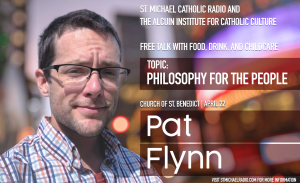Praying to the Saints
The historical Christian practice of asking our departed brothers and sisters in Christ—the saints—for their intercession has come under attack in the last few hundred years. Though the practice dates to the earliest days of Christianity and is shared by Catholics, Eastern Orthodox, other Eastern Christians, and even some Anglicans—meaning that all-told it is shared by more than three-quarters of the Christians on earth—it still comes under heavy attack from many within the Protestant movement that started in the sixteenth century.
Can They Hear Us?
One charge made against it is that the saints in heaven cannot even hear our prayers, making it useless to ask for their intercession. However, this is not true. As Scripture indicates, those in heaven are aware of the prayers of those on earth. This can be seen, for example, in Revelation 5:8, where John depicts the saints in heaven offering our prayers to God under the form of “golden bowls full of incense, which are the prayers of the saints.” But if the saints in heaven are offering our prayers to God, then they must be aware of our prayers. They are aware of our petitions and present them to God by interceding for us.
Some might try to argue that in this passage the prayers being offered were not addressed to the saints in heaven but directly to God. Yet this argument would only strengthen the fact that those in heaven can hear our prayers, for then the saints would be aware of our prayers even when they are not directed to them!
In any event, it is clear from Revelation 5:8 that the saints in heaven do actively intercede for us. We are explicitly told by John that the incense they offer to God is the prayers of the saints. Prayers are not physical things and cannot be physically offered to God. Thus the saints in heaven are offering our prayers to God mentally. In other words, they are interceding.
One Mediator
Another charge commonly leveled against asking the saints for their intercession is that this violates the sole mediatorship of Christ, which Paul discusses: “For there is one God, and there is one mediator between God and men, the man Christ Jesus” (1 Tim. 2:5).
But asking a person to pray for you in no way violates Christ’s mediatorship, as can be seen from considering the way in which Christ is a mediator. First, Christ is a unique mediator between man and God because he is the only person who is both God and man. He is the only bridge between the two, the only God-man. But that role as mediator is not compromised in the least by the fact that others intercede for us. Furthermore, Christ is a unique mediator between God and man because he is the mediator of the New Covenant (cf. Heb. 9:15; 12:24), just as Moses was the mediator (Greek: mesitās) of the Old Covenant (cf. Gal. 3:19–20).
The intercession of fellow Christians—which is what the saints in heaven are—also clearly does not interfere with Christ’s unique mediatorship, because in the four verses immediately preceding 1 Timothy 2:5, Paul says that Christians should intercede: “First of all, then, I urge that supplications, prayers, intercessions, and thanksgivings be made for all men, for kings and all who are in high positions, that we may lead a quiet and peaceable life, godly and respectful in every way. This is good, and it is acceptable in the sight of God our Savior, who desires all men to be saved and to come to the knowledge of the truth” (1 Tim. 2:1–4). Clearly, then, intercessory prayer offered by Christians on behalf of others is something “good and pleasing to God,” not something infringing on Christ’s role as mediator.
Taken out of The Essential Catholic Survival Guide: Answers to Tough Questions about the Faith. Purchase the book here.

